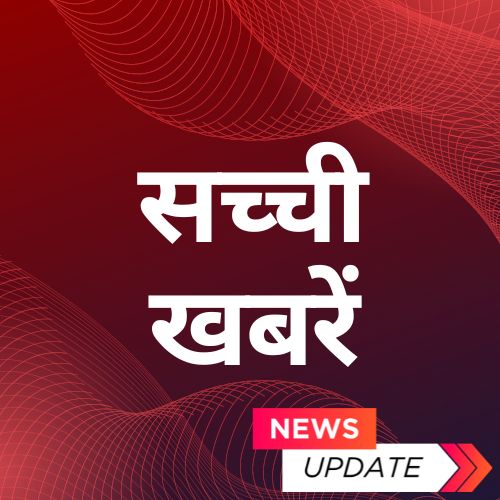Lalu Yadav Predicts Fall of Modi Government by August: A Political Analysis
Introduction
Lalu Prasad Yadav, a seasoned politician and the chief of the Rashtriya Janata Dal (RJD), has recently made headlines with his bold prediction that the Modi government could fall by August 2024, and that elections could happen anytime soon. This statement has sparked a flurry of discussions and debates in the political circles of India. To understand the implications of this prediction, it is essential to delve into the political landscape, the factors that might contribute to such a scenario, and the potential consequences for Indian politics.
Historical Context
Lalu Yadav, known for his charismatic and often controversial political style, has been a prominent figure in Indian politics for decades. His prediction about the fall of the Modi government is significant given his deep understanding of the political machinery and his knack for making prescient political forecasts. However, it’s crucial to analyze this prediction in the context of the current political environment in India.
Also Read: The Assassination of BSP Tamil Nadu Chief Armstrong: A Stark Reminder of Rising Political Violence
Factors Leading to Political Uncertainty
Economic Challenges
One of the primary factors contributing to political uncertainty is the economic situation in India. The Modi government has faced criticism over handling various economic issues, including unemployment, inflation, and slow GDP growth. Despite efforts to revive the economy through initiatives like “Make in India” and various fiscal stimulus packages, the impact of global economic factors and domestic challenges continues to pose significant hurdles.
Social Issues and Protests
The Modi government has also faced numerous social challenges and protests. The farmers’ protests against the agricultural laws, which lasted for over a year, highlighted the growing discontent among rural populations. Although the government eventually repealed the controversial laws, the episode left a mark on the political landscape. Similarly, issues like the Citizenship Amendment Act (CAA) and the National Register of Citizens (NRC) have sparked widespread protests and debates, reflecting deep societal divisions.
Political Realignments
Indian politics is known for its fluid alliances and realignments. The opposition parties, including the Congress, the RJD, and regional parties, have been making efforts to form a united front against the Bharatiya Janata Party (BJP). The success of these efforts could significantly impact the political dynamics and potentially lead to a change in government. Lalu Yadav’s prediction may be rooted in the ongoing discussions and negotiations among opposition parties to create a formidable coalition.
Potential Scenarios Leading to Government Fall
Loss of Majority
For the Modi government to fall, it would require losing its majority in the Lok Sabha (the lower house of India’s Parliament). This could happen if a significant number of Members of Parliament (MPs) from the ruling coalition decide to withdraw their support or switch allegiance to the opposition. Given the current strength of the BJP and its allies, such a scenario would require substantial political maneuvering and significant discontent within the ranks.
No-Confidence Motion
Another potential scenario is the passing of a no-confidence motion against the government. For this to succeed, the opposition would need to mobilize a majority in the Lok Sabha. While the BJP’s strong numbers make this challenging, it’s not entirely impossible, especially if there are shifts in political loyalties or if smaller parties decide to side with the opposition.
Implications of Early Elections
Political Stability
Early elections could lead to a period of political instability, as parties scramble to mobilize their bases and campaign on short notice. This could impact governance and the implementation of key policies, further exacerbating economic and social issues.
Voter Sentiment
Voter sentiment would play a crucial role in early elections. Public perception of the Modi government’s performance on economic management, handling of social issues, and overall governance would be pivotal. The opposition would likely focus on these areas to galvanize support and present themselves as a viable alternative.
Impact on Policies
A change in government could lead to significant shifts in policies. The new government might prioritize different issues, revise existing policies, and introduce new initiatives. This could impact various sectors, from economy and agriculture to foreign policy and social welfare.
Lalu Yadav’s Political Strategy
Lalu Yadav’s prediction might also be a strategic move to energize the opposition and create a sense of momentum. By projecting the possibility of early elections and the fall of the Modi government, he could be aiming to unite the opposition and mobilize their supporters. This tactic can also keep the ruling party on its toes and force them to address pressing issues more proactively.
Conclusion
Lalu Yadav’s prediction of the Modi government falling by August 2024 and the possibility of early elections has added a new dimension to Indian politics. While such predictions should be taken with a grain of caution, they highlight the underlying tensions and challenges faced by the current government. The economic situation, social issues, and political realignments all contribute to an environment of uncertainty.
Whether or not Lalu Yadav’s prediction comes true, it underscores the dynamic and unpredictable nature of Indian politics. As the country navigates through these turbulent times, the actions of political leaders and the response of the electorate will play a decisive role in shaping the future trajectory of the nation.
